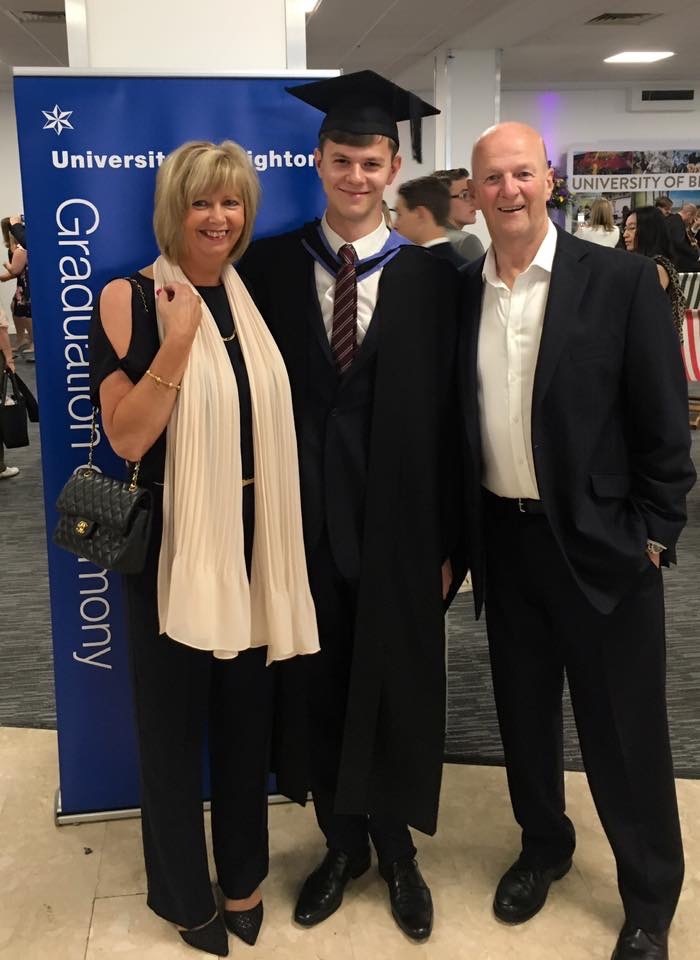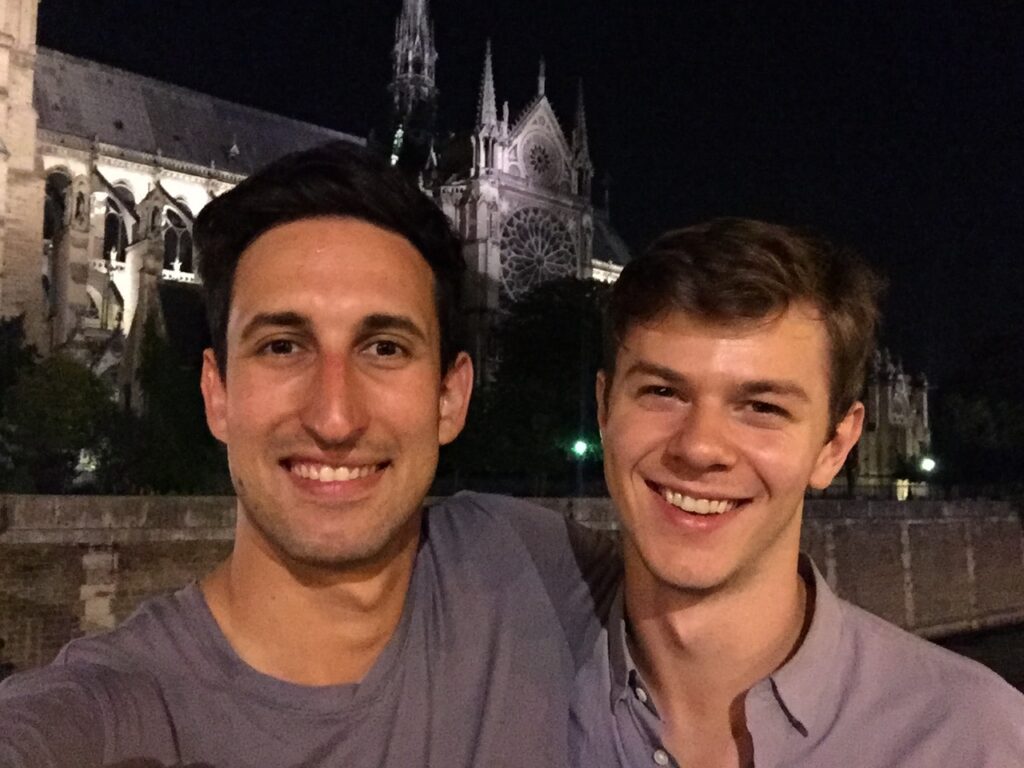Hearst UK manager on going from hiding sexuality to living proud
In partnership with myGwork

myGwork sat down to talk to Guy Thompson, global digital account manager at Hearst UK, about his experiences growing up, and how they have shaped his belief in the power of authenticity – at work, and beyond.
Guy joins me from Hearst UK’s London office on a wet Tuesday afternoon, cheery nonetheless as we sit down to discuss the journey he’s found himself on, and where he is today.
Like most good stories, we start at the beginning with Guy’s parents. He speaks of them fondly as he reflects on his upbringing. “My mum had been working her entire life,” he recalls, “And so had my dad. They’re both hard workers, and so that was part of the ethic that was drummed into me from an early age.”

This included their striving to get him into good schools, which ultimately Guy attended. However, he feels this might have led to him being in essence “overprotected”.
While his primary education was mixed-sex, once he arrived at secondary school – a boys-only school – it was a “shock to the system”. As is the case for so many young LGBTQ+ men, having to navigate adolescence is treacherous enough without having to do so in boys-only spaces.
This led to Guy making unconscious adjustments to his behaviour, to avoid drawing the attention of the other boys. Repression, he says, is part of that. While he may not have been physically victimised, the situation still led to some issues.
“I was always asking myself why I felt different”
“‘Why am I slightly different?’ was always a question bubbling under the surface. I was always asking myself why I felt different to the other boys.” Kids, as the adage goes, can be cruel; and often it is in trying to avoid this cruelty that we end up being cruel to ourselves.
The alienation that Guy came to feel leads him to look back on the period with a sense of lost time. “As soon as [school ended] and I graduated, I thought to myself that my life could start.”
Only less than a week after his A level results did Guy feel comfortable enough to come out. “I had to be out of that sphere in order to become whoever I was; I wasn’t myself throughout the process of my education.”
Graduating his A Levels, Guy headed to the University of Brighton, in a city famed nationally for its diversity. “When I arrived at university, I found myself whispering to people that I was gay, almost expecting people to say something when I did. Instead, they got confused as to why I was whispering it.”
It was a shock, but a welcome one. Guy, like other undergraduates and those liberated from the repressive environments of their youth, could finally – unapologetically – be himself. Reconsidering his time at university during our call, Guy looks back candidly. “It was nice, that people didn’t actually care that I was gay. It made me wonder whether anyone at school would have cared, truthfully, and whether much of it was in my head.”
This exposure to different backgrounds and identities helped Guy to understand that being different didn’t have to be a barrier to being accepted.
No resentment or reason to be scared
The same was true of his parents, to whom Guy stops to reiterate the extent to which he owes them. “I told them I was seeing someone, and they asked me what his name was. They knew, but there wasn’t any resentment or reason to be scared.”
When asked about the biggest influence on his worldview, unsurprisingly it is things like this, and the lessons from his parents, that have shaped Guy the most. His Dad particularly, Guy feels, taught him a lesson about engaging with the world around him. “He never let himself be intimidated by anyone. He went through life being himself, never making assumptions.”

Recalling a boy he was seeing in his late teens, Guy remembers that he simply didn’t tell anyone – not even close friends. “I didn’t want judgment; I didn’t want attention.” In the end, he ended up telling his friends one by one, when the moment felt right. “You never know what people’s reactions are going to be, and part of you wants to keep this fantasy image of you that they have going.”
Eventually with time, and as Guy told more and more people, he regained his footing with the lesson from his father that ultimately, he didn’t care what people thought, and wasn’t going to be intimidated by them. Through this, he went from strength to strength in becoming comfortably himself, and unapologetic about who that was.
Being yourself at work
This has translated into Guy’s work. “Being yourself at work is being out and proud about who you are. You’re confident, and you’re true to yourself.”
For Guy, he knew he had to be himself at work. It let him bring that confidence and genuine nature to his interviews before even getting the job itself. At Hearst UK now, he is an active member of its Pride ERG and throws himself readily into the work they do.
Whatever the task, Guy is there, engaging himself and reflecting on his journey.
“There was an exhibition at the V&A on toxic masculinity, and we decided we were going to go. It’s important to be able to reflect on these things, and use the lessons learnt to really build on the culture we’re creating in our workplace.”
That culture continues to go from strength to strength.
Hearst UK is a proud partner of myGwork, the LGBTQ+ Business Community. You can check out its job opportunities here.
